Switzerland has a stunningly high rate of gun ownership -here's why they don't have mass shootings
Switzerland is obsessed with getting shooting right. In fact, every year they hold a shooting contest for kids, ages 13 to 17.

Having an armed citizenry helped keep the Swiss neutral for more than 200 years.
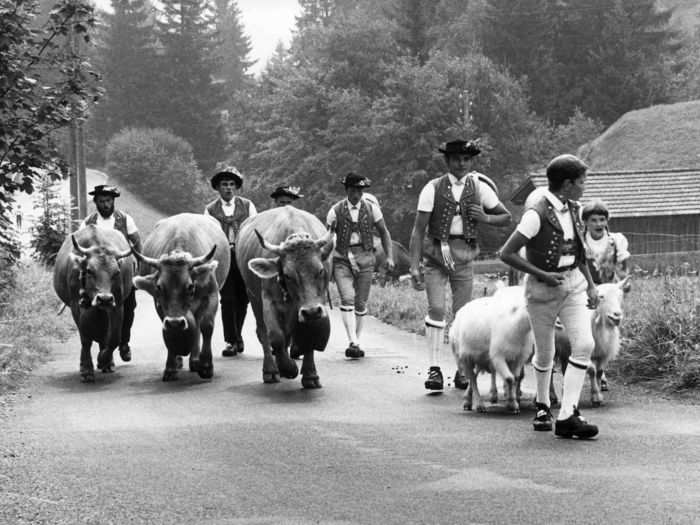
The Swiss stance is one of "armed neutrality."
They stayed out of two world wars in the 1900s, and their weapons helped keep the country from falling to French control under King Louis XIV before that.
They haven't taken part in any international armed conflict since 1815, but some Swiss soldiers help out with peacekeeping missions around the world.
Many Swiss see gun ownership as part of a patriotic duty to protect the homeland.
Most Swiss men are required to learn how to use a gun.
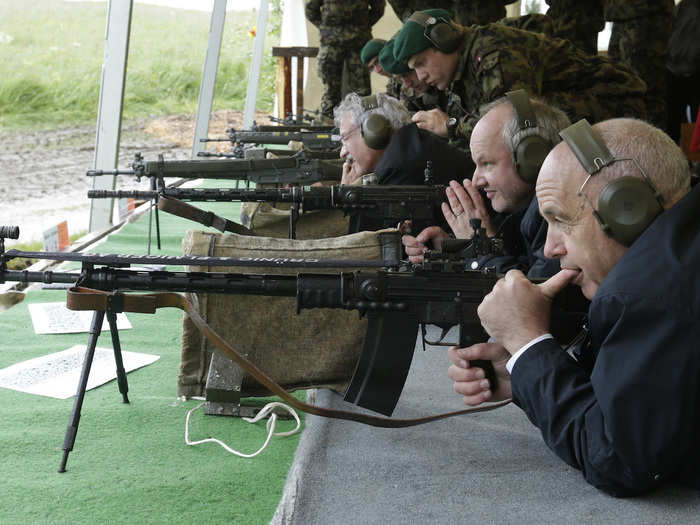
Unlike the US, Switzerland has mandatory military service for men.
All healthy men between the ages of 18 and 34 who are "fit for service" are trained and given a pistol or rifle.
After they've finished their service, the men can typically buy and keep their service weapons, but they have to get a permit for them.
Switzerland is a bit like a well-designed fort.
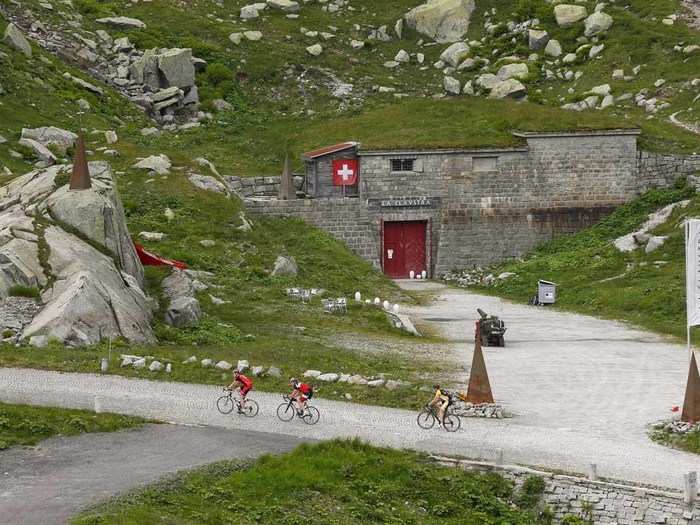
Swiss borders are basically designed to blow up on command, with at least three thousand demolition points on bridges, roads, rails and tunnels around the landlocked European country.
Author John McPhee put it this way in his book, "Place de la Concorde Suisse:"
"Near the German border of Switzerland, every railroad and highway tunnel has been prepared to pinch shut explosively. Nearby mountains have been made so porous that whole divisions can fit inside them."
Roughly a quarter of the gun-toting Swiss use their weapons for army or police duty.
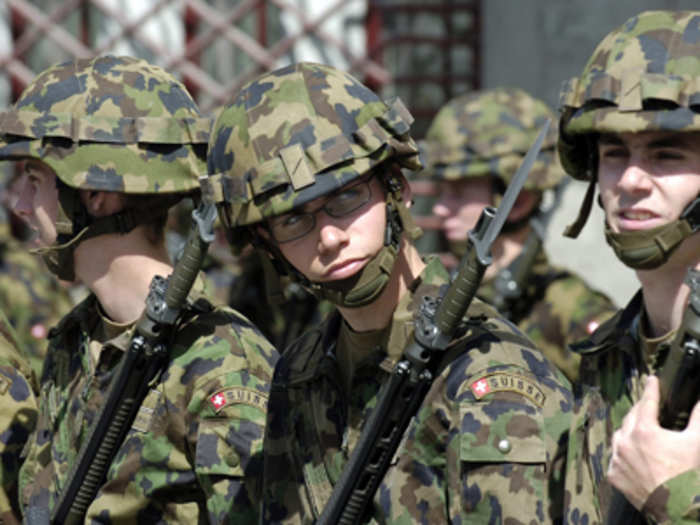
In 2000, more than 25% of Swiss gun owners said they kept their weapon for army or police duty, while less than 5% of Americans said the same.
In addition to the militiamen's arms, the country has about 2 million privately-owned guns, a number that's been plummeting in recent years.
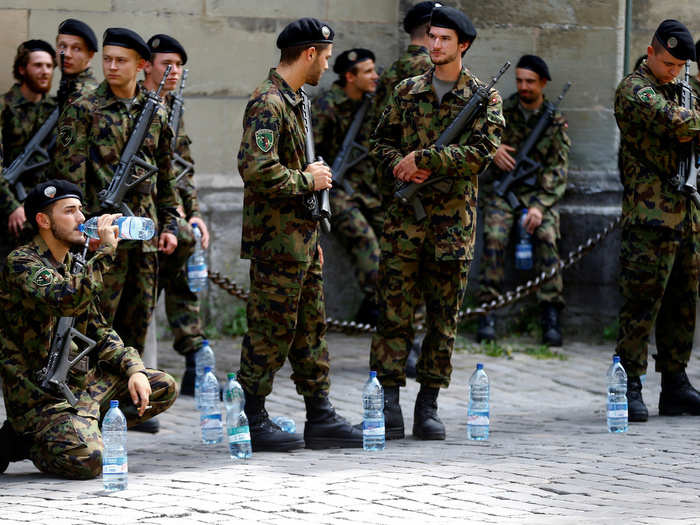
The government estimates about half of the privately-owned guns in the country are former service rifles. But there are signs the Swiss gun-to-human ratio is dwindling.
In 2007, the Small Arms Survey ranked Switzerland as the third-highest gun-owning country in the world, only outdone by the US and Yemen. But it seems that 3,400,000 figure has dropped precipitously over the past decade. The Swiss government now estimates there's about one civilian gun for every four Swiss people.
In recent years, the Swiss federal legislature has voted to reduce the size of the country's armed forces, by and large a militia system made up of armed men around the country.
Gun sellers follow strict licensing procedures.
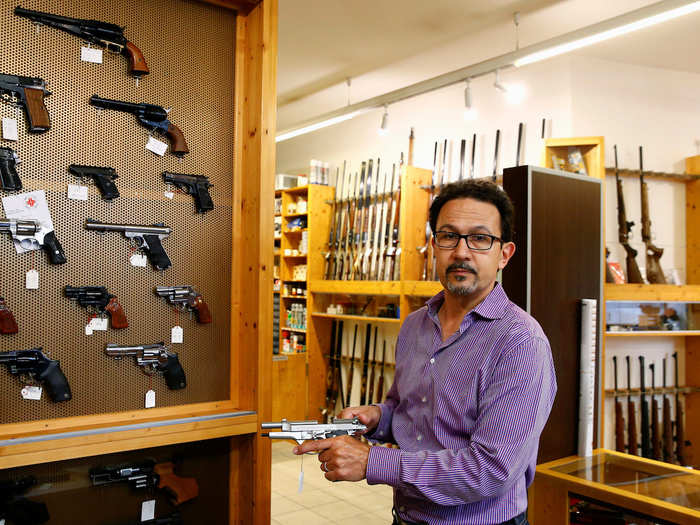
Swiss authorities decide on a local level whether or not to give people gun permits. They also keep a log of everyone who owns a gun in their region, known as a "canton."
There are a few exceptions: hunting guns like rifles and semi-automatic longarms are exempt from the restrictions.
But cantonal police don't take their duty dolling out gun licenses lightly. They might consult a psychiatrist, or talk with authorities in other cantons where a person's lived before, to vet a new gun buyer before they issue a permit.
That's a model some US states — like New York, New Jersey, Connecticut, and Rhode Island — are considering following.
Swiss laws don't let anyone who's violent or incompetent own a gun.
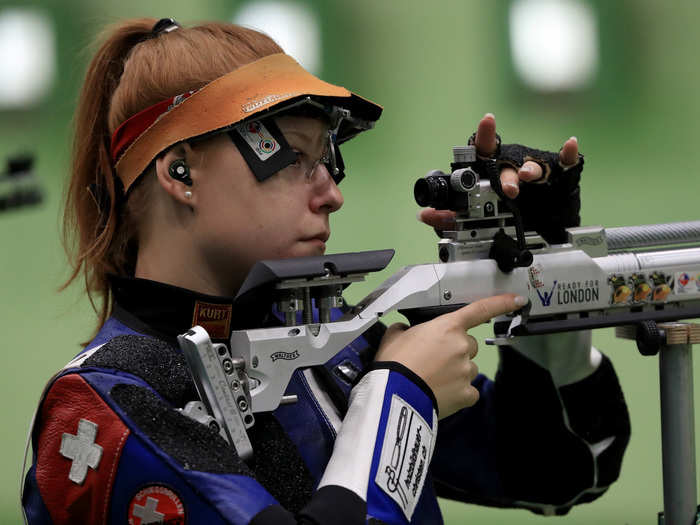
People who've been convicted of a crime, or are struggling with alcohol or drug addiction aren't allowed to buy arms.
The law also states that anyone who "expresses a violent or dangerous attitude" won't be given a gun.
Gun owners also have to prove they can properly load, unload and shoot their weapon, and pass a test before they get their license.
Switzerland is also one of the richest, healthiest, and by some measures, happiest countries in the world.
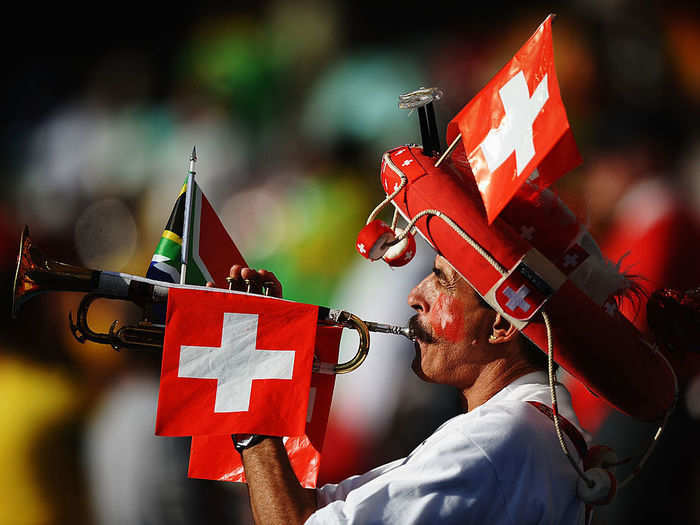
It came in fourth on the 2017 World Happiness Report from the United Nations.
The Swiss were applauded for their high marks on "all the main factors found to support happiness: caring, freedom, generosity, honesty, health, income and good governance" the report authors wrote.
Meanwhile, in the US, happiness has taken a dive over the past decade.
"The reasons are declining social support and increased corruption," the same authors said.
But the Swiss aren't perfect when it comes to guns.
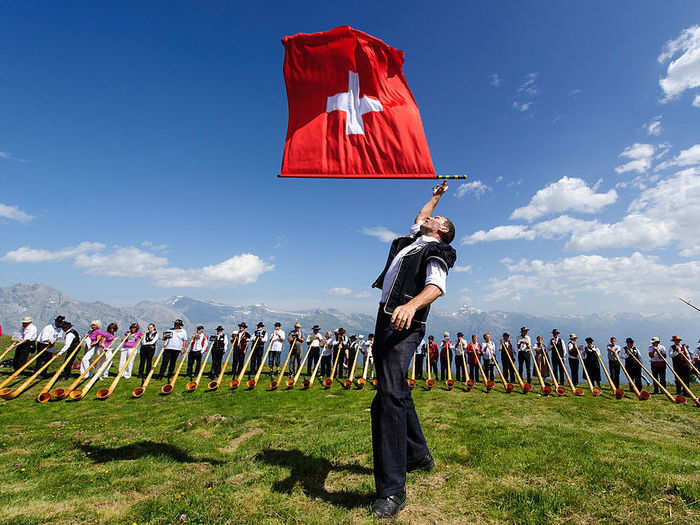
Switzerland still has one of the highest gun violence rates in Europe. The majority of gun deaths in the country are suicides.
Around the world, stronger gun laws mean fewer gun deaths. And that's been true in Switzerland, too.
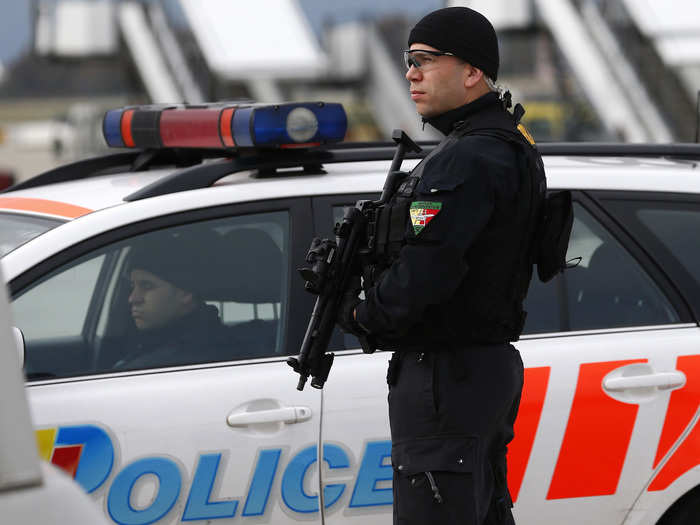
After hundreds of years of letting local cantons determine gun rules, Switzerland passed its first federal regulations on guns in 1999, after the country's crime rate increased during 1990s.
Since then, more provisions have been added to keep the country on par with EU gun laws, and gun deaths have continued to drop.
As of 2015, the Swiss estimated that only about 11% of the Swiss keep their army-issued gun at home. Fewer guns at home has led to a drop in suicides.
Most people aren't really allowed to carry their guns around in Switzerland.

Concealed carry permits are tough to get in Switzerland, and most people who aren't security workers or police don't have one.
"We have guns at home, but they are kept for peaceful purposes," Professor Martin Killias, director of criminology at Zurich University told the BBC in 2013.
"There is no point taking the gun out of your home in Switzerland because it is illegal to carry a gun in the street," he said.
That's mostly true. Hunters and sports shooters are only allowed to transport their guns from their home to the firing range; they can't just stop off for coffee with their rifle.
And guns can also never be loaded when they're being transported. So there's no chance that a gun might accidentally fire off in a place like Starbucks in Switzerland — a mishap which has happened in the US at least twice.
Popular Right Now
Popular Keywords
Advertisement